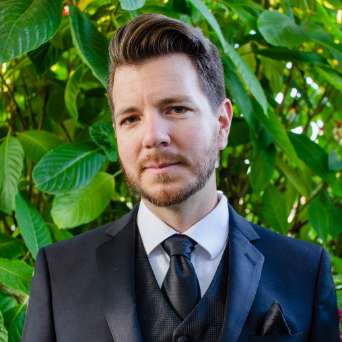If opera is indeed the ultimate of art forms, it is also the most treacherous of art forms. For the same reasons that opera can be sublime, the combination of music, dance, drama and art, a performance can also suffer if just one these elements is suboptimal. At the opening night of Los Angeles Opera’s run of Bellini’s Bel Canto classic Norma (a Washington National Opera production), describing some elements of the performance as suboptimal would be optimistic. Yet the takeaway from Saturday night is the performance of Angela Meade as the title character, a rendition where the word “sublime” doesn’t quite seem adequate.
This American soprano, previously seen here as a soaring Donna Anna, has since taken The Met by storm and is a rare treat for Los Angeles audiences. Meade’s is a voice that immediately commands attention. It is large (the echo heard off the balcony walls) yet focused; it is powerful, thrilling, yet impeccably controlled. As the high priestess, an intensely demanding role, Meade was in complete control with vocal stamina to spare. She had all the technical aspects the role requires: thrilling high notes, tight coloratura, a trill, and ravishing pianissimos. “Casta Diva”, the musical redemption of the opera, was alone worth the price of admission. This is a special voice and a special musician.
Her Adalgisa was Jamie Barton (also via The Met), a mezzo with a burnished sound that was an impressive fit with Meade’s. Although Barton didn’t possess the vocal consistency of Meade’s performance (who could?), it is an exciting and singular sound, a future Amneris to be sure. Their musical sensitivies were especially impressive, highlighted in the duet "Mira, o Norma", the pair sang with outstanding balance, impressively in tune and in sync. Voices aside, these are two singers who have a distinct connection to the drama, diving in to their roles with determination, resulting in vibrant, raw performances on stage.
And speaking of the stage, remember those suboptimal elements I mentioned? This was a drab affair visually and dramatically. The set was practically colorless and static for the entire evening, a bare abstract structure. The mishmash of costumes didn’t add much to the overall palette either. As far as a statement or vision for the piece, a thoughtful one didn’t appear to be on the menu. The formulaic bel canto style demands interpolation, motion – something. Yet this staging was about as formulaic as one could imagine. Bellini’s expansive music, suggesting movement or dance, was often short-changed on the stage leading to spans of orchestration that were static or predictable in staging. The dancing priestesses were given short sequences that bordered on mundane.
The singers weren’t given much to do in their long scenes creating a sort of “park and bark” tableau for the majority of the evening. And even when they were given instruction, movements were so minimal that they were exaggerated, as if in a silent movie, leading the staid drama to seem camp, which leads us to perhaps the most significant problem. There were several instances where the supertitles led the audience to loud guffaws at the most tragic, inappropriate times. It was a complete failure of suspension of disbelief and the ability to draw the audience in to this dramatic world, no fault of the singers.
The rest of the cast included standout tenor Russell Thomas, who sang a fiercly stentorian Pollione. His is a strong, exciting voice, even though the vocals and characterization were often two-dimensional. Morris Robinson sang Oroveso with a huge bass voice that filled the hall and Lacey Jo Benter was a touching Clotilde. James Conlon led the LA Opera Orchestra with his customary command of the score, with the best moments coming during the undoubtable highlights “Casta Diva” and the duet “Si fino all’ore estreme”. But the band could often sound strained, harsh. Even the usually excellent chorus wasn’t quite at its best, singing tentatively and not quite together.
There are good performances, great performances, poor performances, and Angela Meade as Norma is one of the great ones. In an art form that has everything, sometimes just one thing is so remarkable that it is enough. In LA Opera’s Norma, Angela Meade is more than enough: a superb voice in some of the most historically daunting music in opera. While this production of Norma may quickly be forgotten Angela Meade won't be.




